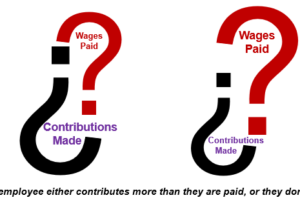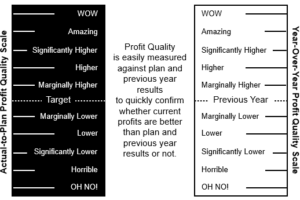Synopsis
The Contributions Management Process is structured personal development to help those seeking to contribute more to work through self-identified desired change. Change that the individual desires to make to improve their contribution effectiveness, not a change forced upon them.
Improving personal effectiveness and management skills is aided by using a development framework to help individuals structure their plan for building on strength or overcoming a challenge. Those who fail to plan for their development have a much more difficult time initiating and sustaining the personal change they want to make.
Personal change ultimately comes down to how much better you want to become in whatever area you want to improve. Whether you have been doing or battling something for years or only months, everyone can improve their ability to make a difference in approaching the people they work with or any task.
Working through personal change is hard work
Businesses never change because of new systems, processes, or structures. They change because the people employed in business adapt and change to work with the new systems, processes, or structures.
Only when the people within any company have made their transitions can a business reap the benefits of change. Part of the contributions management process is structured personal development to help those seeking to contribute more to work through self-identified desired change. Change that the individual desires to make to improve their effectiveness, not a change forced upon them.
Personal development begins when you decide to explore and test what changes you would like to make in your life. Your first step is to consider what’s good and not so good in your life. Next is to determine the changes you are considering and how they will affect you and your circle of influence.
Allow yourself reflection time on your current reality and what you would like to experience differently before jumping into any personal development plan. Once you are clear on what you want to change, frame your desired change through the benefits you aspire to have vs. what you are trying to avoid.
Your goal is to replace negative self-talk with optimism and confidence as you let go of the old to embrace the new. This is best done by rebuilding how you talk to yourself, interact, and work with others.
Know that before you begin to see the benefits of the change you seek to make in yourself, you will experience discomfort and setbacks. When this happens, allow yourself to be human, then resolve to own the change you want to see in yourself and get back to the work of being the change.
Being clear on where you want to become better is the start of your personal development
When the change you want to make is Black & White, you eliminate ambiguity in defining what change you want to make to improve your personal effectiveness.
If you see shades of gray in how you can do and be a better you, first consider your families, employees, customers, and community depend on you to lead them into a new and better future. Those who look to you as a leader trust you to be your best. Seeing how you can be your best will help you make your desired change Black & White.
Research has proven that any excuse a person offers for not doing or being better is found in the shades of gray. You can have excuses or results, but you can’t have both. The following personal development triangle is a helpful tool for framing where your personal development energies should be focused:

Every change requires overcoming conflict. The conflict arises from the pull of the status quo or doing it as you have always done against the desire to be or do things differently. The better you understand the concepts that make up the change triangle, the better you position yourself in making and sustaining the desired change:
Change starts with the desire to make or become different through disciplined acts that result in your becoming different. Synonyms include modification, variation, transformation, revolution, conversion, adjustment, and amendment.
Knowledge is earned by studying facts and information that develop skills through experience and education involving a subject of interest. Synonyms include learning, understanding, intelligence, capability, comprehension, grasp, command, mastery, proficiency, and expertise.
Emotion is a natural instinctive state of mind deriving from one’s circumstances, mood, or relationships with others. Emotions are instinctive or intuitive feelings as distinguished from reasoning or knowledge. Synonyms include feeling, sentiment, instinct, intuition, reaction, and response.
Behavior is defined as how one acts or conducts oneself, especially toward others or in response to a particular situation or stimulus. Synonyms include conduct, performance, actions, reaction, response, doings, bearings, and deportment.
Would you like some help establishing a contributions management process?
Click the link below to speak with one of our certified business coaches to learn how you can best set up a Contributions Management Process. A process that will lead you to make more money by helping those in your employ better appreciate what they can do and be better at in exchange for the wages you pay them.
Would you like some help establishing a contributions management process?
Click the link below to speak with one of our certified business coaches to learn how you can best set up a Contributions Management Process. A process that will lead you to make more money by helping those in your employ better appreciate what they can do and be better at in exchange for the wages you pay them.
SCHEDULE APPOINTMENT
